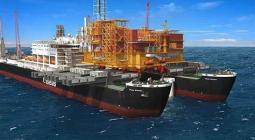“Shameful”: Shell uses carbon credits under investigation to meet climate targets
The oil and gas giant offset part of its emissions with over a million credits from Chinese projects suspended because of integrity concerns
Oil and gas giant Shell is counting discredited carbon credits towards its climate goals, drawing accusations of “bad faith” and “malintent”.
Last month, Shell used rice farming carbon credits to offset a chunk of its annual emissions, claiming to reduce the “carbon intensity” of its fossil fuel products.
But experts have long argued that the sellers of these offsets are over-counting their emissions reductions and using accounting tricks to evade checks, as a Climate Home investigation showed last year.
These accusations led leading carbon standard Verra to suspend the projects early last year and launch an investigation. Shell took them off its website as a result.
But, although Verra’s review continues, on January 9 Shell quietly retired over a million credits produced by the suspended projects, meaning it counts the claimed emissions reductions towards its climate targets.
Rachel Rose Jackson, director of climate policy at Corporate Accountability, said Shell’s actions were “shameful, dubious and reckless against the backdrop of a deadly climate emergency”.
“To retire over one million offsets from projects actively under investigation reeks of bad faith and malintent”, she added.
Carbon Market Watch’s Jonathan Crook said Shell should have at least waited until Verra’s review had ended to see if there were problems with the offsets.
If the offsets do have problems then, he added, they “have no value from a climate perspective and using them towards net carbon intensity targets is totally inappropriate”.
Shell did not reply to detailed questions on these particular offsets. But a spokesperson said that the credits the company buys are “certified in accordance with independent standards and further screened through our due diligence process”.
Claiming to lower rice emissions
The idea behind the projects is that emitters like Shell pay for Chinese rice farmers to take measures to reduce their emissions that they wouldn’t otherwise be able to afford.
Rice is traditionally grown in flooded fields known as paddies. These have more bacteria than dry fields and the bacteria breaks down decaying plants, turning them into a potent greenhouse gas called methane.
To reduce the damage to the climate and save water, the project developers claimed they would pay farmers to periodically drain their fields. With less standing water, there are fewer bacteria and less methane.
But opinions from experts and scientific literature suggest that lots of farmers already employ this technique across China, encouraged by the central government. So they do not need incentives from carbon credit to do so.
Carbon credit rating agency BeZero Carbon has given a Chinese rice cultivation project similar to Shell’s its lowest possible score.
Its assessment says there is a “significant risk” that the emissions reduction measures are not additional to what would happen without the carbon credit money “due to the high level of government support for the project activities”.
A Climate Home investigation last year found that the project developers artificially divided up fields across several projects to pass them off as small-scale and avoid stricter checks.
Quality issues
These activities were initially given the green light by leading carbon standard Verra. But early last year, in response to concerns, it identified “quality issues”, launched a review and stopped the projects from producing any more credits.
But the suspension did not prevent offsets already in circulation from being sold or used to offset emissions.
When Climate Home approached Shell last year, the company said it was aware of Verra’s review and “would look carefully at the results when they are published”.
The company took the offsets off a webpage dedicated to its portfolio of carbon credits offered to external clients, with a spokesperson saying this was “pending Verra’s review”.
Nearly a year later, the results of the review have still not been published and the projects remain on hold. But Shell retired 1.23 million carbon credits issued by those projects, offsetting emissions equivalent to three gas-fired power plants running for a year.
A Shell spokesperson said the company had “recently retired a number of carbon credits as part of our net carbon intensity target”.
Finding a way out
Shell’s involvement in these projects is not just as a buyer. The schemes were originally set up by a Chinese firm but four years later Shell signed a series of agreements to become its exclusive agent.
The role granted Shell the right to either claim the credits against its emissions or sell them to other companies, potentially profiting from their sale.
Before Verra suspended the projects, only a quarter of the credits issued by the projects had been used, primarily by Chinese state-owned oil company PetroChina.
Shell retired the vast majority of the remaining credits on January 9. Carbon Market Watch’s Crook says it would appear Shell “had sunk money into the projects and had these credits sitting on their books”.
“Perhaps they have not been able to find any buyers since the projects were put on hold”, he added. “Or perhaps they are doubting that the review will be positive and it will be difficult to sell or trade any of these credits in the future. So they went ahead and used them themselves”.
Shell involved in rule-making
While Verra probes the credits, it has taken the rare step of banning any further use of the rice farming methodology under which the projects were developed.
The register is now working on a new rulebook for future rice farming offsets. It says it will allow project developers “to credibly achieve emission reductions and generate high-quality credits”.
To advise them on this, Verra has appointed an Indian company which is part of Shell, raising concerns about conflict of interests.
Crook described this as a “recurring issue” in the carbon credit world. He said: “You have actors who wear all these different hats. They can sometimes develop methodologies, transact carbon credits and/or use them towards their own targets, potentially based on rules they helped develop. It raises real questions around conflicts of interest and integrity.”
A Verra spokesperson told Climate Home it “takes potential and actual conflicts of interest very seriously” and that methodologies “undergo an extensive review process before they are finalised” and at each stage “all stakeholders, including the public, have an opportunity to evaluate and comment”.
They said: “This process is designed to promptly identify any issues with the methodology, including the opportunity to identify any perceived conflicts of interest”.
Investigation ongoing
The spokesperson said Verra does not comment on specific projects under review to avoid influencing the outcome of the investigation.
“The steps in a review, as well as the timeline for completing the review, depend on the underlying facts and circumstances, the complexity of the issues, the cooperation of third parties and other factors”, they said.
“A review may take several weeks or months to complete,” they added, “while every review is different, Verra aims to conduct an appropriately scoped review as expeditiously as possible.”
A spokesperson for Shell said: “We retire credits to compensate emissions, including those associated with the energy our customers use in transport, homes, producing goods and providing services. This approach complements our activities to avoid and reduce emissions from our own operations”.
Cover photo: Greenpeace protesters erect a spoof billboard outside Shell’s HQ. Photo: Chris J Ratcliffe / Greenpeace




